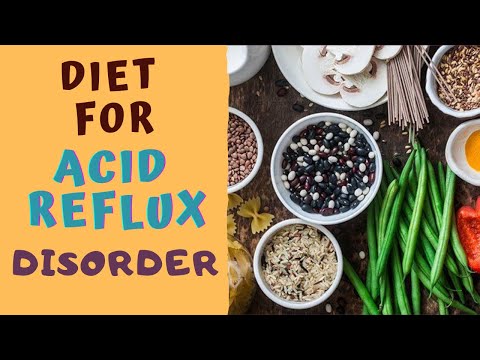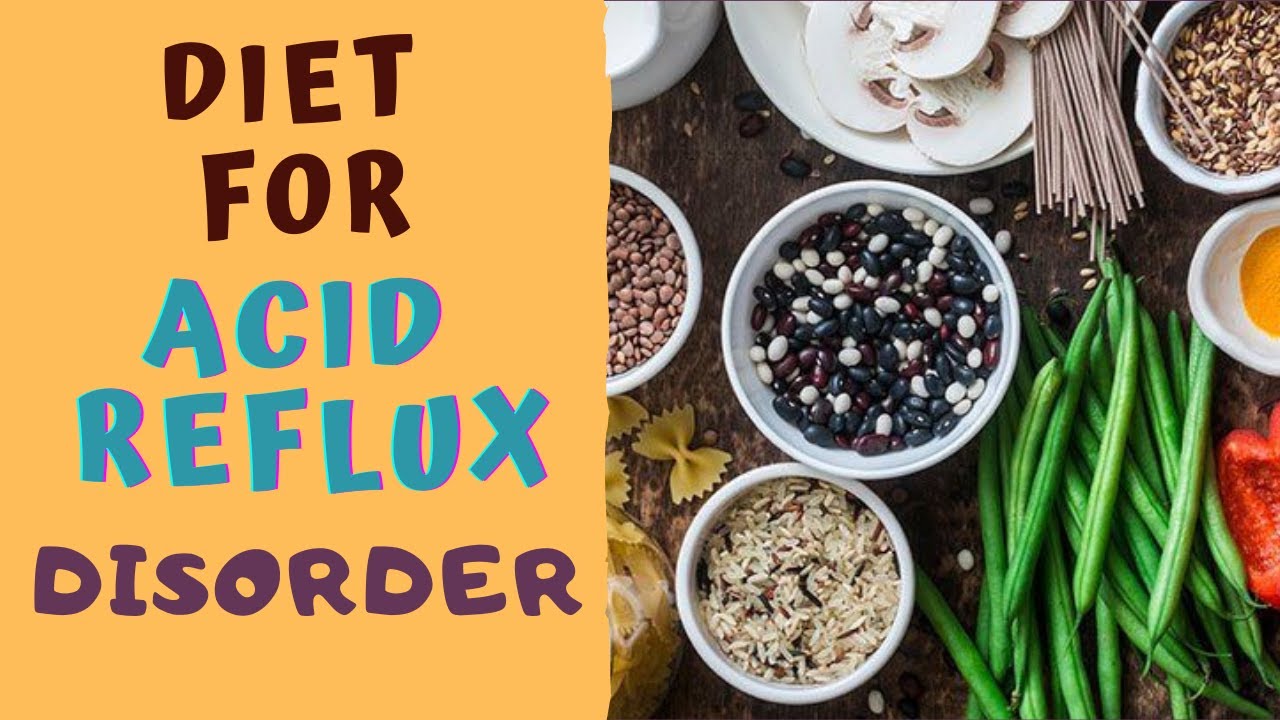Looking for natural ways to find relief from acid reflux? Discover the perfect diet that can help alleviate your discomfort and promote a healthier digestive system. Say goodbye to the constant burning sensation and uncomfortable bloating, and embrace a new way of eating that will leave you feeling revitalized. With our comprehensive guide on what to eat for acid reflux relief, you’ll learn about the power of alkaline foods that neutralize stomach acid, fiber-rich options that aid digestion, and anti-inflammatory ingredients that soothe irritated tissues. Say hello to delicious meals packed with fresh fruits and vegetables, lean proteins, and whole grains, all carefully selected to keep your acid reflux at bay. No more relying on over-the-counter medications or enduring painful symptoms. Take control of your health and enjoy a more comfortable life with a diet designed specifically for acid reflux relief. Start incorporating these nutritious and satisfying foods into your daily routine and experience the long-lasting benefits they bring. It’s time to embrace a new way of eating that not only nourishes your body but also keeps acid reflux in check.

Acid Reflux Relief: Recommended Foods
| Food Category | Recommended Options | Benefits |
|---|---|---|
| Fruits | Bananas, apples, watermelon | These fruits are low in acid content and can help soothe the esophagus while providing essential vitamins and minerals. |
| Vegetables | Broccoli, kale, spinach | Leafy greens and cruciferous vegetables are alkaline-rich and aid in reducing acidity, promoting better digestion. |
| Whole Grains | Oatmeal, brown rice, whole wheat bread | These fiber-rich options help regulate digestion and prevent acid reflux by keeping the stomach full for longer periods. |
| Lean Proteins | Chicken breast, fish, tofu | Lean proteins are easier on the digestive system and provide essential nutrients without triggering acid reflux symptoms. |
| Healthy Fats | Avocado, olive oil, nuts | These sources of healthy fats help reduce inflammation and promote smooth digestion, aiding in acid reflux relief. |
| Dairy Alternatives | Almond milk, soy-based yogurt | Non-dairy options are often better tolerated and can provide necessary nutrients without exacerbating acid reflux symptoms. |
| Herbs and Spices | Ginger, turmeric, fennel | These natural remedies possess anti-inflammatory properties and can help soothe the digestive tract, reducing acid reflux symptoms. |
It is important to note that individual triggers may vary, and it is advisable to consult with a healthcare professional or a registered dietitian to create a personalized acid reflux diet plan.
By incorporating these recommended foods into your diet, you can effectively manage acid reflux symptoms and improve overall digestive health.
“Food Friends and Foes: Your Guide to Battling Acid Reflux”
What to Eat for Acid Reflux Relief: A Comprehensive Guide
If you suffer from acid reflux, you know how uncomfortable and debilitating it can be. The burning sensation, chest pain, and regurgitation of stomach acid are all too familiar for those who experience this condition. While medication can provide some relief, it is also important to consider the role that diet plays in managing acid reflux. In this article, we will explore what to eat for acid reflux relief, providing you with valuable information to alleviate your symptoms and improve your quality of life.
1. Incorporate High-Fiber Foods
Fiber-rich foods can help regulate digestion and prevent acid reflux symptoms. Whole grains, such as oatmeal, brown rice, and whole wheat bread, are excellent sources of fiber. Additionally, fruits and vegetables like apples, bananas, broccoli, and carrots are rich in fiber and can aid in reducing acid reflux symptoms.
2. Choose Lean Proteins
Opting for lean proteins can help minimize acid reflux symptoms. Fish, skinless poultry, and lean cuts of beef or pork are all great choices. Avoiding fatty meats and processed meats, which can trigger acid reflux, is crucial in managing the condition.
3. Emphasize Non-Citrus Fruits
Fruits are generally considered healthy, but some varieties can worsen acid reflux symptoms due to their high acidity content. Instead, focus on non-citrus fruits like melons, bananas, and apples, which are less likely to trigger acid reflux. These fruits provide essential nutrients while being gentle on the stomach.
4. Incorporate Probiotic-Rich Foods
Probiotic-rich foods promote a healthy gut and can aid in reducing acid reflux symptoms. Yogurt, kefir, sauerkraut, and kimchi are all excellent sources of probiotics. These foods help maintain the balance of good bacteria in the digestive system, which can improve overall digestion and reduce the occurrence of acid reflux.
5. Avoid Trigger Foods
While knowing what to eat is essential, it is equally important to be aware of foods that can trigger acid reflux. Certain foods and beverages are known to worsen symptoms, including spicy foods, chocolate, coffee, carbonated drinks, and alcohol. It is best to avoid or limit consumption of these trigger foods to prevent acid reflux flare-ups.
In addition to following these dietary guidelines, there are a few general tips to keep in mind when it comes to managing acid reflux:
– Eat smaller, more frequent meals to avoid overloading the stomach and triggering acid reflux.
– Avoid lying down immediately after eating, as this can increase the likelihood of acid reflux.
– Elevate the head of your bed by using a wedge pillow or raising the mattress, as this can help prevent stomach acid from flowing back into the esophagus while you sleep.
Remember, it is always best to consult with a healthcare professional or a registered dietitian before making significant changes to your diet, especially if you have underlying health conditions or are taking medications.
In conclusion, managing acid reflux through diet is a crucial aspect of finding relief. By incorporating high-fiber foods, lean proteins, non-citrus fruits, and probiotic-rich foods while avoiding trigger foods, you can significantly reduce acid reflux symptoms. Additionally, following general tips such as eating smaller, more frequent meals, avoiding lying down immediately after eating, and elevating the head of your bed can further aid in managing acid reflux. Take control of your diet and make the necessary changes to alleviate your acid reflux symptoms and improve your overall well-being.
List of Foods for Acid Reflux Relief
- Oatmeal
- Ginger
- Non-citrus fruits
- Leafy greens
- Almonds
- Lean proteins
- Whole grains
- Low-fat dairy products
- Non-mint herbal teas
- Healthy fats (olive oil, avocados)
Frequently Asked Questions
What are some foods that can help relieve acid reflux?
- Oatmeal: Oatmeal is a great breakfast option for individuals with acid reflux. It is high in fiber and helps absorb acid in the stomach.
- Ginger: Ginger has natural anti-inflammatory properties and can help reduce the inflammation associated with acid reflux. It can be consumed in the form of ginger tea or added to meals.
- Leafy green vegetables: Vegetables like kale, spinach, and broccoli are alkaline in nature and can help neutralize stomach acid.
- Lean proteins: Chicken, turkey, and fish are lean sources of protein that are less likely to trigger acid reflux.
- Bananas: Bananas are low in acid and can help coat the stomach lining, providing relief from acid reflux.
What foods should be avoided to prevent acid reflux?
- Spicy foods: Spices like chili powder, black pepper, and hot sauce can irritate the esophagus and worsen acid reflux symptoms.
- Citrus fruits: Oranges, lemons, grapefruits, and other citrus fruits are highly acidic and can increase stomach acid production.
- Tomatoes: Tomatoes and tomato-based products like ketchup and tomato sauce are acidic and can trigger acid reflux.
- Fried and fatty foods: These foods can relax the lower esophageal sphincter (LES), allowing stomach acid to flow back into the esophagus.
- Carbonated beverages: Carbonated drinks like soda and sparkling water can increase gas production and put pressure on the LES, leading to acid reflux.
Are there any lifestyle changes that can help with acid reflux?
- Eating smaller, more frequent meals: Consuming smaller portions can help reduce the amount of acid produced by the stomach.
- Avoiding lying down immediately after eating: It is recommended to wait at least 2-3 hours before lying down after a meal to prevent acid reflux.
- Elevating the head of the bed: Raising the head of the bed by 6-8 inches can help prevent stomach acid from flowing back into the esophagus while sleeping.
- Quitting smoking: Smoking can weaken the LES and increase the risk of acid reflux. Quitting smoking can improve symptoms.
- Managing stress: Stress can worsen acid reflux symptoms. Engaging in stress-reducing activities like exercise, meditation, and yoga can help alleviate symptoms.

